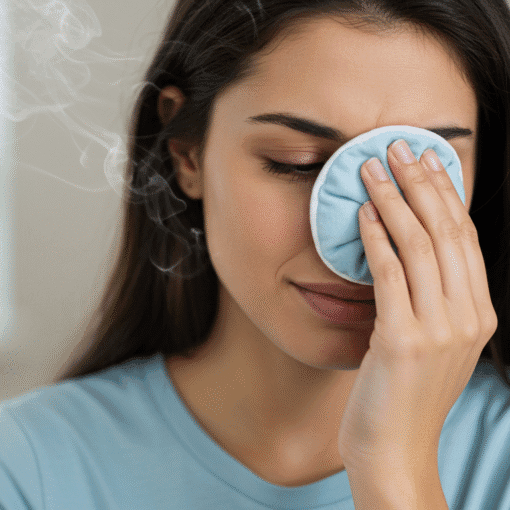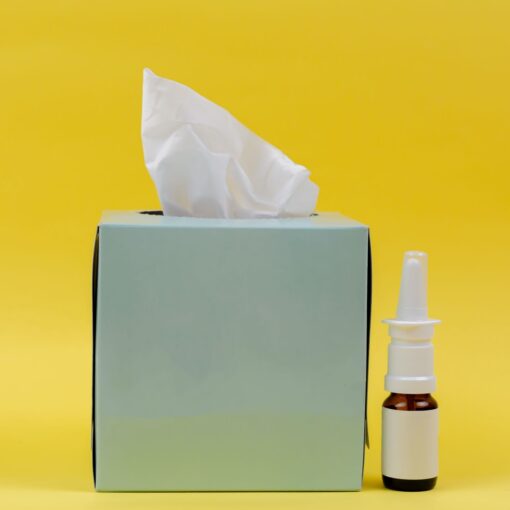Page Menu
Springtime! The flowers flourish, the light shines, and then—bam! The seasonal allergens are here. If you're anything like me, you might sneeze more than a cartoon character who just ate pepper. But don't worry! There are many ways to deal with those annoying allergy symptoms. Let's talk about some good strategies to keep those sniffles away.
Understanding Your Allergens
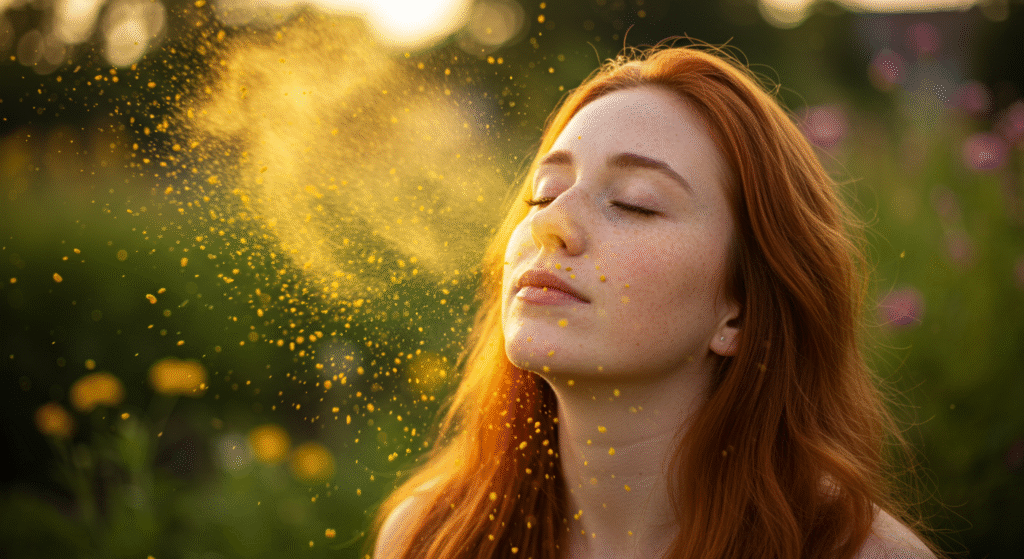
First things first: recognizing your enemy is half the battle. Pollen from trees, grasses, and weeds is a common cause of seasonal allergies. It's like an unwanted party crasher that comes every year without fail. Have you ever tried to have a picnic only to be attacked by a cloud of pollen? Not fun!
Please Note: This post may contain affiliate links. If you click one of them, we may receive a commission at no extra cost to you. As an Amazon Associate, I earn from qualifying purchases.
To properly handle your allergies, you need to know what causes them. Every sneeze and sniffle is a clue that will help you find the person who did it. You might notice that some periods of the year make your symptoms worse than others. For example, do you sneeze a lot in April when all the flowers bloom? Or maybe it's later in the summer when pollen from grass starts to float through the air? It can be quite helpful to keep note of these tendencies.
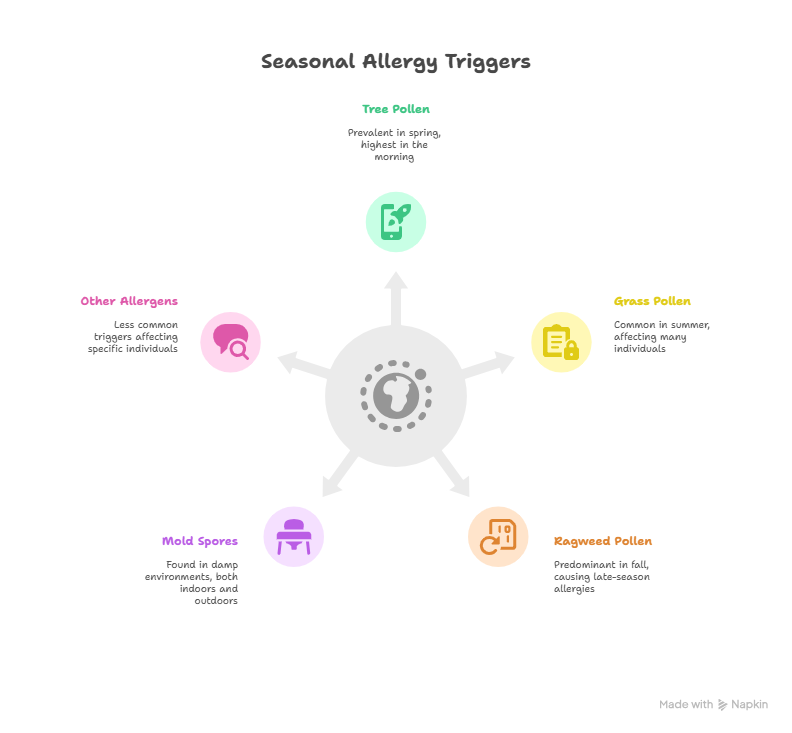
Keeping a journal throughout allergy season is an excellent approach to figure out what sets you off. It doesn't have to be anything special; a plain notebook would do! Write down when your symptoms got worse, where you were, and what you were doing at the time. Did you just cut the grass? Were you relaxing under that lovely oak tree? Noticing these little things can show you connections you didn't expect.
A lot of people find out that they're allergic to more than simply pollen. They can also be allergic to certain plants or even mold spores that are hiding in wet places like basements or bathrooms. Who would have thought that those innocent-looking houseplants could be working against us? Once you know what your allergens are, it's much easier to schedule your outside activities around them. For example, if ragweed is your enemy, you might want to stay away from fields full of wildflowers in late summer.
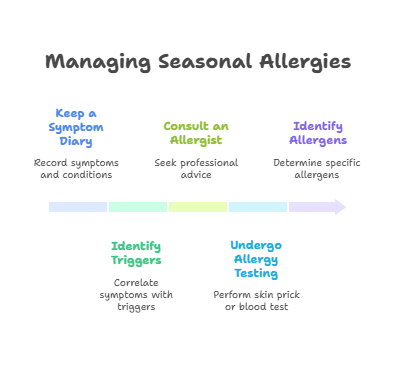
Along with keeping an eye on your symptoms, you might want to see an allergist who can do tests and provide you useful information about what's hurting you. They might offer skin prick tests or blood testing that can find out exactly what you're allergic to, like having a secret decoder ring for your health! You'll feel more in control of seasonal shifts with this information than powerless.
So, before you go on a summer trek or a spring picnic, check in with your allergy journal first. It might help you avoid sneezing through another beautiful day outside!
Staying Indoors During High Pollen Counts

One thing I always do while planning is remain inside when pollen counts are high. I know what you're thinking: “But I want to play in the sun!” And believe me, I do too! But sometimes it's better to wait until later in the day, when the pollen levels go down, to have that picnic. This usually happens after it rains or in the late afternoon.
You can look at local weather reports or utilize applications that are made just for keeping track of pollen levels in your area. It's like having a secret weapon against allergies, to be honest! These useful apps give you real-time data on pollen counts, so you can plan your outside activities for days when the air is clear and your nose isn't itching like crazy. You wake up to a gorgeous sunny day, but then you see that the pollen prediction looks like a scary movie. These programs will help you stay one step ahead of those annoying particles.
When you do go outside on days when you don't sneeze, don't forget to wear sunglasses. Not only do they make you look effortlessly stylish (hello, celebrity vibes!), but they also protect your eyes from things that can irritate them in the air. Pollen doesn't simply float around looking for noses to tickle; it's also out there looking for weak eyes! Wearing sunglasses keeps those little bugs away by establishing a barrier. Also, who wouldn't want to wear cool sunglasses while drinking iced tea?
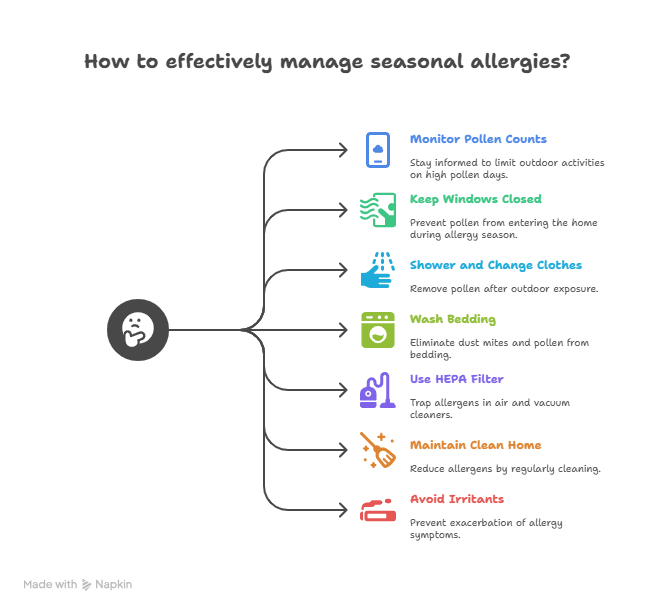
Some people even swear by certain kinds of sunglasses made just for persons with allergies. These wraparound versions provide you more coverage and lower the risk of allergens getting in from the sides. It's like putting a shield over your face! And let's be honest: sometimes we all need a bit more help keeping the outside world out.
Also, think about when you go out. Pollen levels are usually lower in the early morning and late evening than they are in the middle of the day, when everything seems to bloom into mayhem. If you want to walk or run in the park, try to do so at the quieter times when nature is less likely to make you sneeze.
In short, you can enjoy the great outdoors without feeling like you're fighting an army of allergens every time you go outside if you have the necessary tools and plans in place, such as checking pollen forecasts and wearing trendy sunglasses. Go ahead and enjoy your adventures in the fresh air; just be smart about them!
Creating an Allergy-Friendly Home Environment
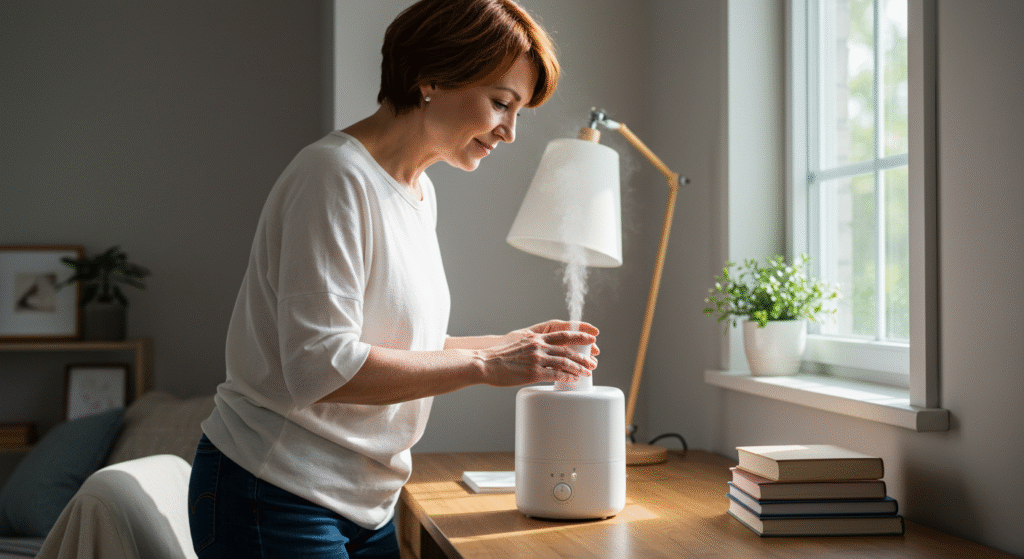
Your house should be a safe place for you to be free of allergens. First, make sure that your home is as allergy-friendly as it can be. Cleaning surfaces with a moist cloth on a regular basis helps keep dust from flying into the air. Who needs more particles floating around?
You might want to get an air purifier with HEPA filters because these little machines are great at catching tiny particles that are floating around. If you've ever looked at a dust particle under a microscope, you might want to think again about how good your indoor air is! HEPA filters are like the superheroes of the air-cleaning world since they can catch allergens as small as 0.3 microns. They swoop in to get pollen, pet hair, and even some bacteria that might be hiding in your home. It's like having a little vacuum for the air. How wonderful is that?
Now, let's talk about the beds where we spend a lot of time. I don't know about you, but I really want my sleeping area to be as clean and free of allergens as possible! That's why it's so important to wash your sheets in hot water often. Dust mites love to live in sheets and pillowcases; it's like a five-star hotel for them! But here's the best part: washing those sheets in hot water (at least 130°F) kills those annoying bugs and gets rid of their feces. I know, it's awful! This one easy thing can make a big difference in the number of dust mites and other allergies that are hiding in our beds.
This isn't only for sheets; you should also wash your comforter and pillows every once in a while. If your pillows can't go in the washing machine (some can't), take them outdoors on a sunny day and fluff them up. The sun can help get rid of some allergies and make them smell better. Plus, who doesn't adore the smell of fresh air?
Adding protective covers for pillows and mattresses can really help keep allergens out even more. These encasements are meant to keep unwelcome guests from crashing your sleepover. How great is that?
And since we're talking about cleanliness, don't forget to vacuum! If you use a vacuum cleaner with a HEPA filter, it will help keep dust bunnies off the floors, which could make you sneeze later. So take that vacuum and treat it like your best friend. Go after those allergens that are hidden behind curtains or beneath furniture.
In short, using an air purifier and washing your mattress often makes it less likely that allergies will grow. With these tips in mind, you'll not only breathe better, but you'll also sleep better knowing you've done something to make your home healthier!
Natural Remedies That Work Wonders

Now comes the exciting part: natural cures! Did you know that some foods can really assist with allergy symptoms? For example, consuming honey from your area may expose you to modest amounts of pollen and help your body build up immunity over time (but don't expect miracles overnight!). Ginger tea is another good choice because ginger can help calm down sore throats because it contains anti-inflammatory effects.
And if you're feeling brave, you could try using saline solutions or neti pots to clean your nose. I know what you're thinking right now: “What the heck is a neti pot?” Doesn't that sound like something from a science fiction movie? But believe me, these small devices work well and are quite easy to use to clear up allergies lodged in your nose! Imagine this: you're slowly pouring a warm saline solution into one nostril and seeing it move through your sinuses and out the other side. It's like a spa day for your nose!
A neti pot can help get rid of pollen, dust, and other things that get stuck in your nose and make you feel bad. Honestly, it feels great to have that instant relief when all those annoying particles go away. You might even find it easier to breathe right after your first try! Just think of how pleasant it would be to go outside and not feel like you've breathed in half of the plants in the area.
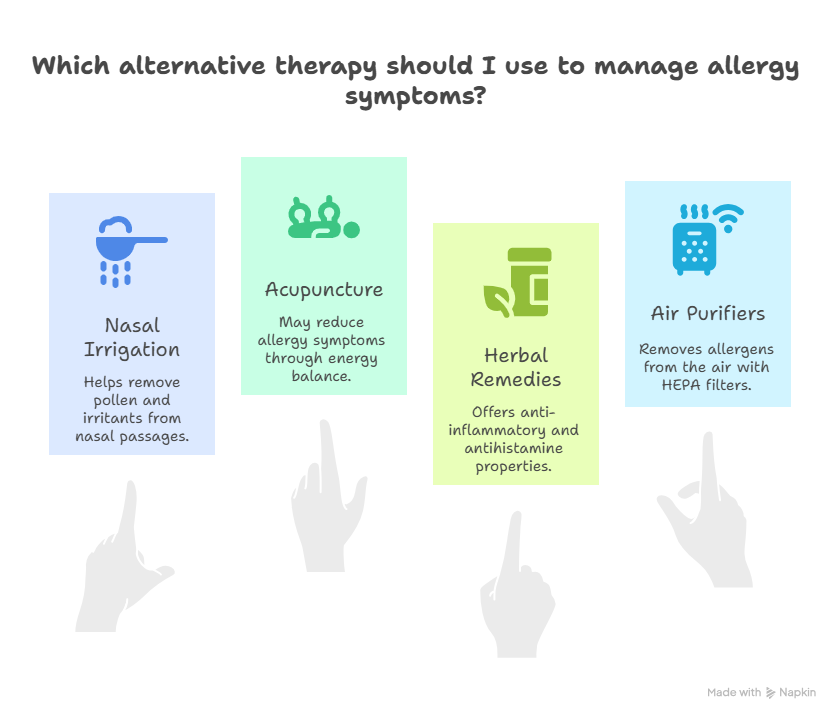
To start nasal irrigation, mix distilled or sterile water with salt that doesn't have iodine in it. This blend makes the best saline solution for cleaning out your sinuses. And let's be honest: having a neti pot on hand is the best way to say, “I'm ready for allergy season!” Some look like little teapots, while others are more modern and streamlined. There is undoubtedly a design that will go nicely with your bathroom decor, whether you like classic or modern styles.
Before you jump right into your new habit, there are some key things you should remember. First of all, make sure everything is clean. You should wash your neti pot well before each use to keep bacteria from getting into your body (yikes!). Also, don't go overboard; once or twice a day is typically enough unless your doctor tells you otherwise.
Many people say that after adding nasal irrigation to their regular routines, they not only feel better about their allergies but also better overall. Who would have thought that something so easy could be so good for you? It's like finding an old family recipe that everyone loves!
Why not try nasal irrigation? At the very least, you'll have a funny story about how you got into the strange world of sinus treatment. It also sounds like a win-win situation if it helps with those unpleasant allergy symptoms and makes you feel better than before.
Over-the-Counter Solutions

No matter how hard we try, Mother Nature doesn't always play fair. In certain situations, over-the-counter drugs can be very helpful (no prescription needed!). Antihistamines are great at stopping those annoying histamines that create all kinds of problems in our systems when we come into contact with allergens.
But not all antihistamines are the same. Some may make you sleepy, while others may keep you alert and ready to go. It's like a novel where you can choose your own adventure to get rid of allergies! Imagine this: you're watching a great Netflix show with popcorn in hand when your nose starts to itch and your eyes start to moisten. You reach for an antihistamine, but wait—did you get the one that will put you to sleep? That could ruin your plans to watch a lot of TV!
Let's take it apart a little. There are two primary groups of antihistamines: first-generation and second-generation. First-generation antihistamines, such as diphenhydramine (the main ingredient in Benadryl), are well known for making people sleepy. Yes, they can help with those annoying allergy symptoms, but do you really want to fall asleep in the middle of your favorite show? Most likely not! They work wonderfully if you want to relax before bed or if you've had a long day and just need some sleep.
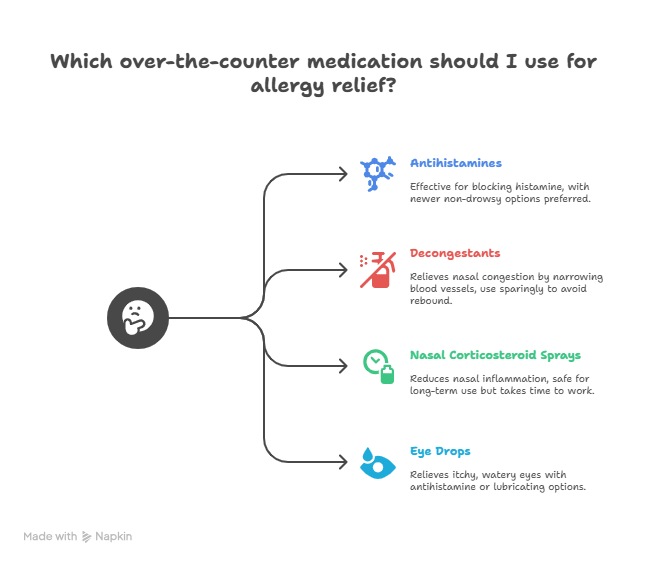
We also have second-generation antihistamines like loratadine (Claritin) and cetirizine (Zyrtec). These simple things are meant to help you feel better without making you feel like you just ran a marathon in your jammies. They're great for daytime use when you need to stay awake, like when you're working on projects or arguing with friends about which character on that reality program everyone seems to love the most.
Now comes the fun part: deciding which choice fits your life the best! I mean, who wouldn't want advise on their medicine that is just for them? It's like having a personal trainer for your allergies instead of your muscles! Talking to a pharmacist might help you figure out which antihistamine is best for you based on how busy or relaxed your everyday life is. They can help you figure out all those choices faster than you can say “pollen count.”
Also, don't forget about possible side effects, because no one wants to add dry mouth or dizziness to their already busy life. Some drugs may even make some people hungrier or give them slight headaches. So it's very important to know! When you know what you're getting into, you may make choices that fit perfectly into your life instead of turning it upside down.
In the end, the appropriate antihistamine could change how you feel during allergy season. Instead of sneezing violently while trying to enjoy an outdoor picnic with friends or reclining at home watching movies on a wet afternoon, you'll feel strong and ready! So, take a minute to think about what works best for you. You shouldn't have to give up enjoying life to get rid of your allergies. And who knows, maybe you'll finally find out which team is better, Team Edward or Team Jacob, without any interruptions!
Seeking Professional Help When Needed

If you've tried a lot of different things at home and your seasonal allergies are still too bad to handle, it might be time to get professional help. Allergists have particular tests they may do to find out exactly what causes your symptoms, and they also have therapies that are just right for you!
Desensitization therapy, which is also known as allergy shots, may sound like something out of a science fiction movie, but believe me, it's a true game-changer for people who have severe responses or chronic allergy problems. Imagine being able to play in a field of flowers without worrying that you may turn into a sneezing machine! It sounds like a dream, doesn't it? Well, for a lot of folks, this therapy has helped make that goal come true.
So, how does it work? The idea is quite simple. In short, you get periodical injections that slowly expose you to the allergens that cause your symptoms. At first, these doses are really small, so small that you could think they don't do anything at all! But here's the thing: your body starts to become used to it over time. You wouldn't run 26 miles on the first day of training for a marathon! Instead, you would slowly increase your distance until you crossed the finish line feeling great.
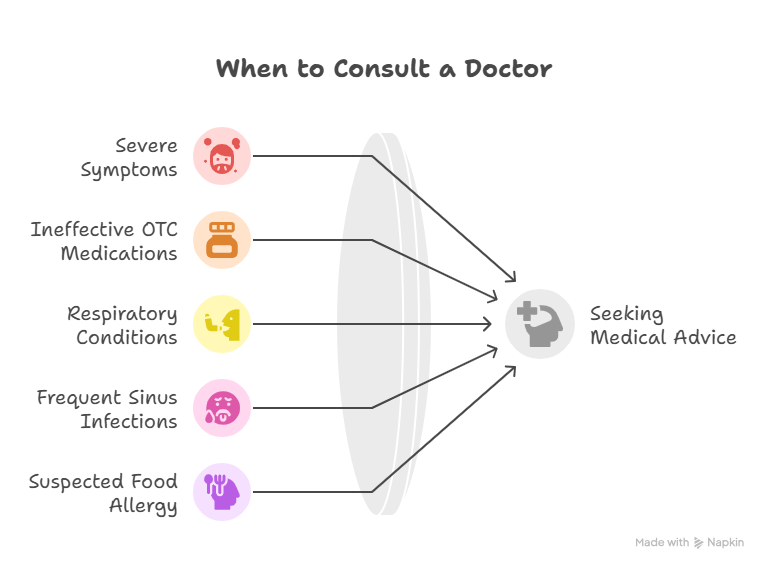
Let's talk about commitment now because desensitization therapy isn't a quick remedy. In other circumstances, it could take repeated trips over the course of several months or even years. Think of it like putting money into a future version of yourself that doesn't sneeze. Once you've become used to the shots, you'll usually start with weekly shots and then go on to monthly maintenance dosages. At first, it could seem like you're spending half your life at the doctor's office, but those visits could help you get rid of allergies that have been bothering you throughout peak seasons for a long time.
Many people say that this treatment has helped them a lot, which is interesting. They are not only enjoying being outside again, but they are also seeing fewer side effects from other drugs since their bodies have learnt how to deal with those annoying allergens better. It's like opening a secret door to a place where the sun shines and the air is fresh!
But there's always a “but,” and this isn't right for everyone. Before you jump into this adventure, your doctor will look at things like your age and health history to see if you're a good fit. Plus, there are hazards; allergic responses can develop (isn't that ironic?), so it's important to have qualified specialists available during those first few sessions when you're getting used to the treatment.
In conclusion, desensitization therapy may seem intense at first, with needles and frequent doctor visits, but it has worked for many people who have had year after year of severe allergies. If typical treatments haven't worked for you yet or if your allergies are really bad, it might be a good idea to talk to your doctor about it. After all, getting your life back during allergy season sounds great—who wouldn't want that? So why not look into this alternative and see if you can get rid of your allergy problems?
Conclusion: Embrace Allergy Season Wisely
Finally, seasonal allergies don't have to ruin your fun in the sun! You'll be ready for everything nature throws at you if you follow these tips for treating seasonal allergies correctly, such as learning about allergens, making your home a safe haven, and looking into natural therapies.
So, gather some tissues and be ready for coming spring. You'll be able to breathe easier!
Suggested Resources
Allergy Symptoms & Treatment
https://www.mayoclinic.org/diseases-conditions/allergies/symptoms-causes/syc-20346226
Seasonal Allergies: Tips for Relief
https://www.webmd.com/allergies/seasonal-allergies
Understanding Allergies
https://www.aafa.org/allergies/

Kevin Collier is a seasoned health writer at Otchut.com, specializing in over-the-counter medicines, common medical ailments, and general health topics. With a background in healthcare and a passion for making medical information accessible, Kevin aims to empower readers with knowledge to make informed health decisions. When he's not writing, he enjoys researching the latest in health trends and advocating for wellness in his community.




